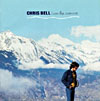
This Week: Sigur Ros' whalesongs and a lost classic
Sigur Ros
Agætis byrjun (Pias)
This is a late, late review of an equally late U.S. release of an album that has been scaring up critical hoo-ha on both sides of the Atlantic for a couple of years. I was, frankly, both attracted and repelled by all the hype (which included a big write-up in The New York Times Magazine, of all places). So I finally bought the thing, half hoping I'd find some reason to dislike it just to prove all the hipsters wrong.

No dice. It is, in fact, a fairly great record. So count me a johnny-come-lately and give me something warm to drink. Sigur Ros is probably not the future of rock 'n' roll—hell, they're not rock 'n' roll at all—but they're a convincing contender for coolest band of the moment. The Reykjavik-based quartet plays atmospheric music that generally takes the form of long, semi-orchestral tracks. Their sumptuous, generous melodies unfold against dreamy soundscapes that inevitably evoke whalesongs and grinding glaciers and drifting icebergs and northern lights.
At the center of it all is singer-guitarist Jon Thor Birgisson, an elfin gay vegetarian who sings like, um, like a gay vegetarian elf—which is to say, in a languorous falsetto that drifts through the lush arrangements, touching down here and there only to leap up again through the layers of strings and guitars and keyboards. The music occasionally swells to clattering crests of drums and cacophony, and one track sounds like a parody of a Viking marching song, with a full male chorus shouting down the halls of Valhalla. There are also nods toward jazz and a sort of movie soundtrack grandiosity. But even at its most delicate, the music is too lovely and arresting and strange to fade to the background. And don't worry about the lyrics—some are in Icelandic, some in a feral tongue Birgisson invents as he goes along, but you don't need the words. The music feels like a universal language you forgot you knew.
—Jesse Fox Mayshark
Critic's Classic: Chris Bell
I Am The Cosmos (RykoDisc)
Memphis, Tennessee's Big Star is second only to the fabled Velvet Undergound in the namedropping game. It seems like almost every pop/rock artist of note in the last 20 years counts Big Star as a major influence. And some (The Replacements, Teenage Fanclub, early R.E.M., The Posies) have copped their sound shamelessly—with admittedly good results. Really, the spate of Big Star soundalikes are more immediately accessible (and generally better) than the countless art rockers mimicking the Velvets' inimitable NY cool.

Chris Bell's I Am The Cosmos is the missing piece of the Big Star puzzle. Recorded in 1978, the album was never released until 1992.
Though Alex Chilton is generally credited as the primary force in Big Star, the group had two leaders on their first album, #1 Record (Stax/Ardent Records). Bell had originally formed the band under a couple of names before Chilton, already famous from his stint with the Box Tops, stepped in.
On #1 Record, the differences between Chilton's and Bell's songwriting styles are obvious. Bell's songs were generally more introspective while Chilton seemed more concerned with rocking out. After #1 Record met with indifference and poor sales, Bell drifted away from the group, disillusioned by the media's focus on Chilton as the lone figurehead.
Once his involvement with Big Star was over, depression set in and Bell drifted through a series of uninteresting jobs, substance abuse and a period of playing solo shows in Europe. Bell finally got it together enough to record in 1978.
I Am The Cosmos is a masterpiece of sadness, one of the most depressing albums of all time. Though there are a couple of jangly rockers that would have suited Big Star perfectly, the bulk of the album is oriented in a singer/songwriter direction that is most comparable to Nick Drake or an arty James Taylor.
The most telling songs on Cosmos are the title track and "Better Save Yourself." Both songs chronicle an inner dialogue dealing with the yin and yang of spiritualism versus the sins of the flesh. Bell's pain is palpable, and that makes for great art.
Another standout track is "You And Your sister," which shows up in three versions on the album. The naked honesty of Bell's yearning is so obvious on all three versions of the song that it makes for uncomfortable listening. Few artists have the guts or the ability to expose themselves so completely.
Bell met his demise in an automobile accident in 1979, while still searching for a label to release the album. Lucky for us, Rykodisc released a lovingly remastered package with extensive liner notes and every available version of the songs.
Tormented young stars cut down in their prime are the stuff of rock 'n' roll legend. And it's impossible not to wonder what heights Bell could have reached if he had lived to record more material. I Am The Cosmos serves as a totem of a great talent that could have been. And more importantly, it's just good music.
—John Sewell

July 12, 2001 * Vol. 11, No. 28
© 2001 Metro Pulse
|